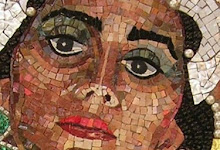
One of the classic Aliyah debates is whether or not to shed just about every facet of one’s ‘old country’ in order to be properly integrated and accepted into the new one. In other words, do we purge ourselves of our American ways and values in order to take on those of our Israeli brethren, or do we bring our culture with us along with our big furniture and Skippy peanut butter? Should we resist the temptation of settling into an American community and sticking to American friends, or should we embrace the support and comfort of our landsmen? I think that the answer is different for every individual and every family. We have tried to do it all. Adapt to our new country’s culture and celebrate the one that we have always known. Mixing the old with the new. While we have naturally made American friends, we have also welcomed and pursued friendships with Israeli’s. We cherish our Israeli friendships as new found treasures, exotic and familiar at the same time. Which is why I was so hurt when I called the home of new Israeli friends and got the following message on their machine (in Hebrew): “Family ________ has gone to _____ for vacation because there are too many Amerikayim in Efrat. Too many Amerikayim! We had to go! Too many Amerikayim! Ahhhhhhh….“ It was meant as a joke. Kind of how I joke that I lived in a South American city called Miami and a South African town called Perth. I know that the person that said this enjoys joking around. He often speaks English to my kids in an exaggerated accent, making them giggle and love being around him. But it still hit a chord. It reminded me that to many Israelis, Americans are seen as too materialistic, too spoiled and well, too American. Some second generation Israeli Americans even try to hide their American origins. I learned that kids actually have a name for Americans that behave too American – they call the Ameri-kaki-im (how clever, you Yisraeli-poopy-im!) If kids are labeling kids as too American, it’s because they are learning it from their parents. Let’s face it. Their perception is correct to a certain degree, but it still makes me angry because it shows how little they appreciate and value exactly how much we Americans have sacrificed and left behind to build our lives anew. I thought of one friend who made Aliyah this year in spite of knowing that she may never see her chronically ill mother again. “What about the rest of Mom’s life?” her brother asked. “What about the rest of my kids’ lives?” she responded “I want them to grow up in Israel”. I think about another friend who made Aliyah almost on her own while her husband had to stay behind, other than a few short visits, in order to support the family during the first transitional year. I think of the many husbands who still travel frequently, sometimes every week, in order to make their Aliyah work financially and I think of their Eishet Chayil wives who have learned to be strong and capable while their husbands are away. I think of not only the salary cuts but also of the prestige cuts that many well established professionals take when they leave hard-won positions behind to start again from the bottom up. I think of the late nights parents spend with a dictionary in hand trying to decipher simple notes home from school and to write short mitzvah notes for their children in a language that their teachers will understand. I also think that while Americans may have bigger furniture and crave supersized Costco packages, they also have really big, supersized hearts. We welcome, support, and give our hearts to each other. While my Israeli friends have the luxury of visiting and being pampered by different relatives every other Shabbat, we have learned to become to each other the family that we lack. This past Shabbat, while my husband was speaking in the US, I spent Shabbat in an “American neighborhood” in Efrat, envied by some, but put down by many. You know what? It was the nicest Shabbat I have had so far (minus the husband away part). I watched as my kids played with their friends in the streets and in nearly everyone’s backyard with make shift Aunts and Uncles watching all around. I saw the love and support between families. You could feel the strength of character and the commitment to Torah and Israel that brought these families to Israel in the first place. They had a communal Seuda Shlishit where all the neighbors casually brought out tables and chairs into the middle of the street, shared delicious food, sang, and spoke divrei Torah. As the sun set behind the Judean Hills, I felt that I was a part of something very unique and special.
At the last Nefesh B’nefesh reception, Rabbi Yehoshua Fass read a letter that he had received that very week. The letter was written by a 10th generation Yerushalmi. She asked him to relate a message to the new olim. She said that while she was a 10th generation Israeli raising the 11th generation, she often wondered what it would have been like to be the first generation. She said that in a way she was jealous of that first generation that they got to be part of something so special, so heroic. She said that one day in many years there would be another 10th generation Israeli raising the 11th generation, and that it would be because of them – the heroic Amerikayim making Aliyah today.
So my mind is made up. If these heros are the American Israelis, than I am proud to be counted as one of them. Let there be many Amerikayim. Here’s to many, many Amerikayim! “And crown thy good with brotherhood from sea (Kineret) to shining sea (Mediterranean).”

No comments:
Post a Comment